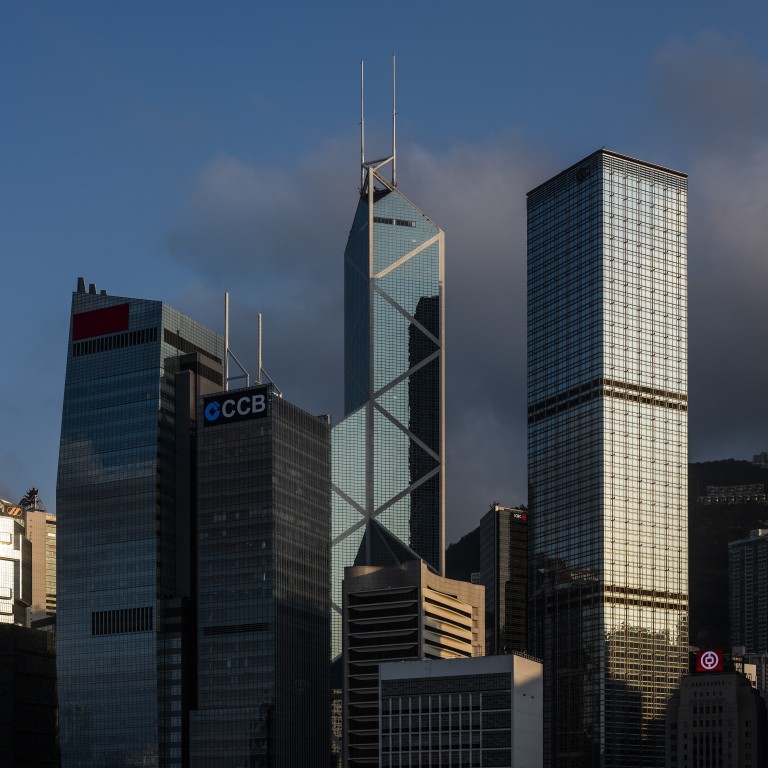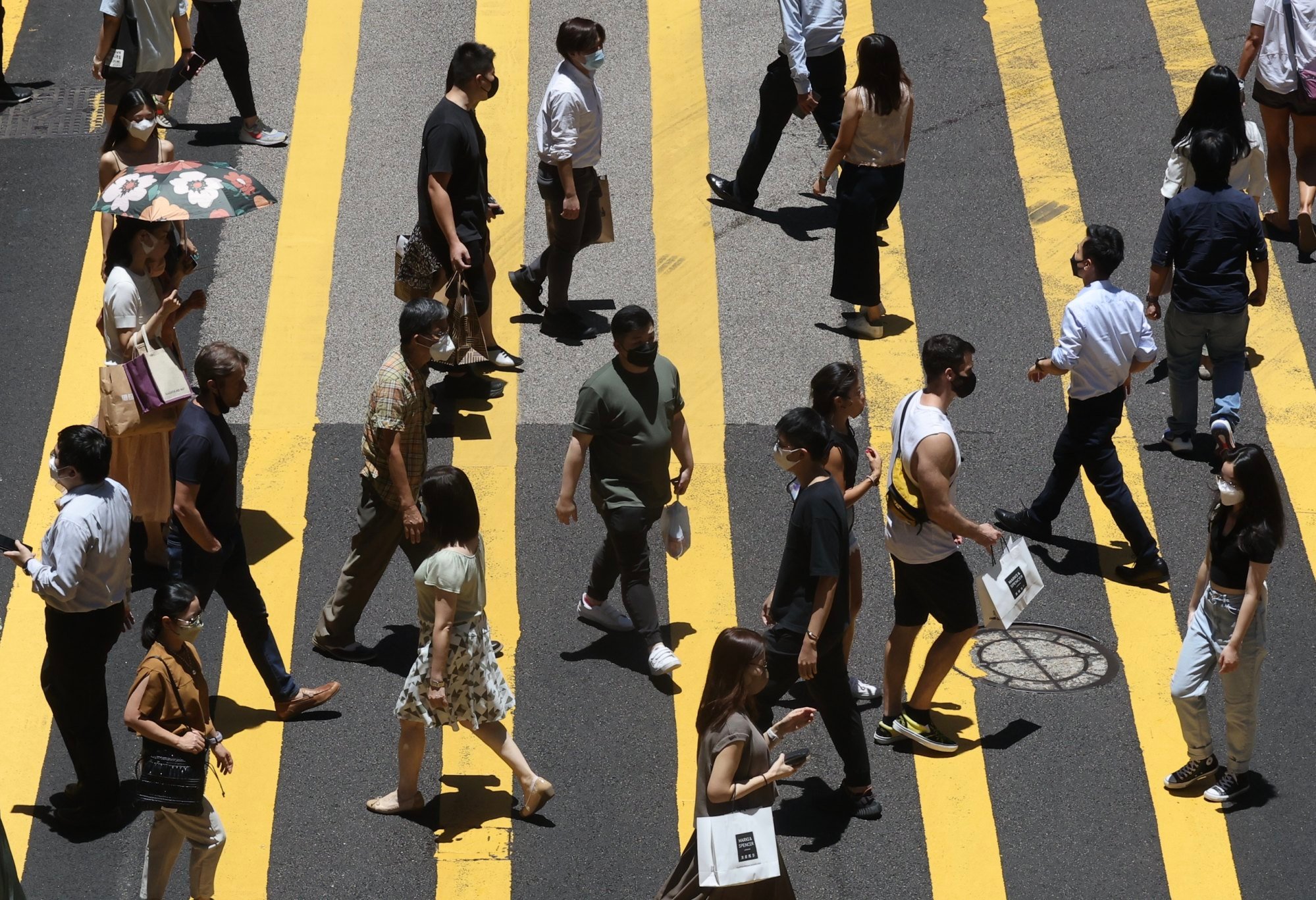
Hong Kong slips into recession as economy shrinks by 1.4 per cent in second quarter
- Hong Kong records a contraction in gross domestic product for a second consecutive quarter, meaning the city has fallen into an economic recession
- Analysts say Hong Kong’s economy is likely to face further pressure unless borders with mainland China and the rest of the world fully reopens
Hong Kong’s economy shrank by 1.4 per cent in the second quarter of 2022 compared with the same period last year amid the continued impact of the fifth coronavirus wave, dragging the city into a recession.
Gross domestic product (GDP) decreased in the second quarter while contracting by a revised 3.9 per cent year on year in the first three months, according to preliminary data released by the Census and Statistics Department on Monday.
A recession is defined as a contraction of GDP for two or more successive quarters. The last time Hong Kong fell into recession was in 2020 during the initial phases of the Covid-19 pandemic.

Hong Kong’s economic performance in the second quarter was worse than authorities initially expected, with the city no longer able to meet the previous estimate of 1 to 2 per cent growth for 2022. The government said it would downgrade its full-year forecast on August 12, when the final GDP data was due to be made public.
The downgrade will mark the second time authorities have lowered their annual growth forecast in three months.
A government spokesman attributed the poor performance to sluggish exports, which decreased 8.6 per cent during the second quarter year on year and worsened from the year-on-year decline of 4.5 per cent in the first three months, as well as the impact of coronavirus social-distancing curbs on businesses.
The city’s private consumption expenditure remained stagnant during the second quarter from the same period last year after a 5.8 per cent decline in the first three months.
“Looking ahead, the worsening global economic prospects will continue to weigh on Hong Kong’s export performance for the remainder of the year,” the spokesman said.
“Elevated inflation in advanced economies amid supply-side disruptions and persistent tension in Ukraine, and the stepping up of monetary policy tightening by many major central banks in response are expected to dampen economic growth significantly.”
Why cutting quarantine isn’t enough to revive Hong Kong’s economy
Even if the mainland’s economy showed signs of further revival, the spokesman said, it might not be able to fully offset the deterioration occurring in advanced economies.
“Nonetheless, if cross-boundary land transportation between the mainland and Hong Kong continues to improve, our external trade may get some relief,” he said.
In May, the government downgraded its forecast for 2022 to 1 to 2 per cent growth from 2 to 3.5 per cent. Hong Kong last year recorded a 6.4 per cent rise in GDP.
Analysts on Monday said the city’s economic performance would come under further pressure unless the borders with mainland China and the rest of the world were fully reopened.
Simon Lee Siu-po, an honorary fellow of the Asia-Pacific Institute of Business at Chinese University, predicted that Hong Kong’s economy could grow by up to 1 per cent overall this year.
“The second half of this year will fare much better with more economic activities due to the easing of the fifth wave of the pandemic,” he said.
“Global consumption will rebound amid the festive seasons as people will go on spending sprees to beat the pandemic fatigue. This will further boost Hong Kong’s exports.”
Hong Kong banks face higher risks on China loans as economy slows: Moody’s
However, Lee said the local economy would only see significant improvement when the city fully reopened its borders with the mainland and resumed international travel without any quarantine requirements.
“Even if the authorities are willing to cut the quarantine period for inbound travellers to three or four days, it won’t help much as global travellers nowadays opt for quarantine-free travel,” he said. “There are many places now that are quarantine-free. Why would travellers bother to go through the hassle of visiting Hong Kong?”
Iris Pang, chief economist for Greater China at financial services firm ING, forecast that the city’s annual GDP would remain positive, with 0.68 per cent growth compared with last year. She added that her prediction was based on the assumption that the city would drop travel restrictions in the fourth quarter.

